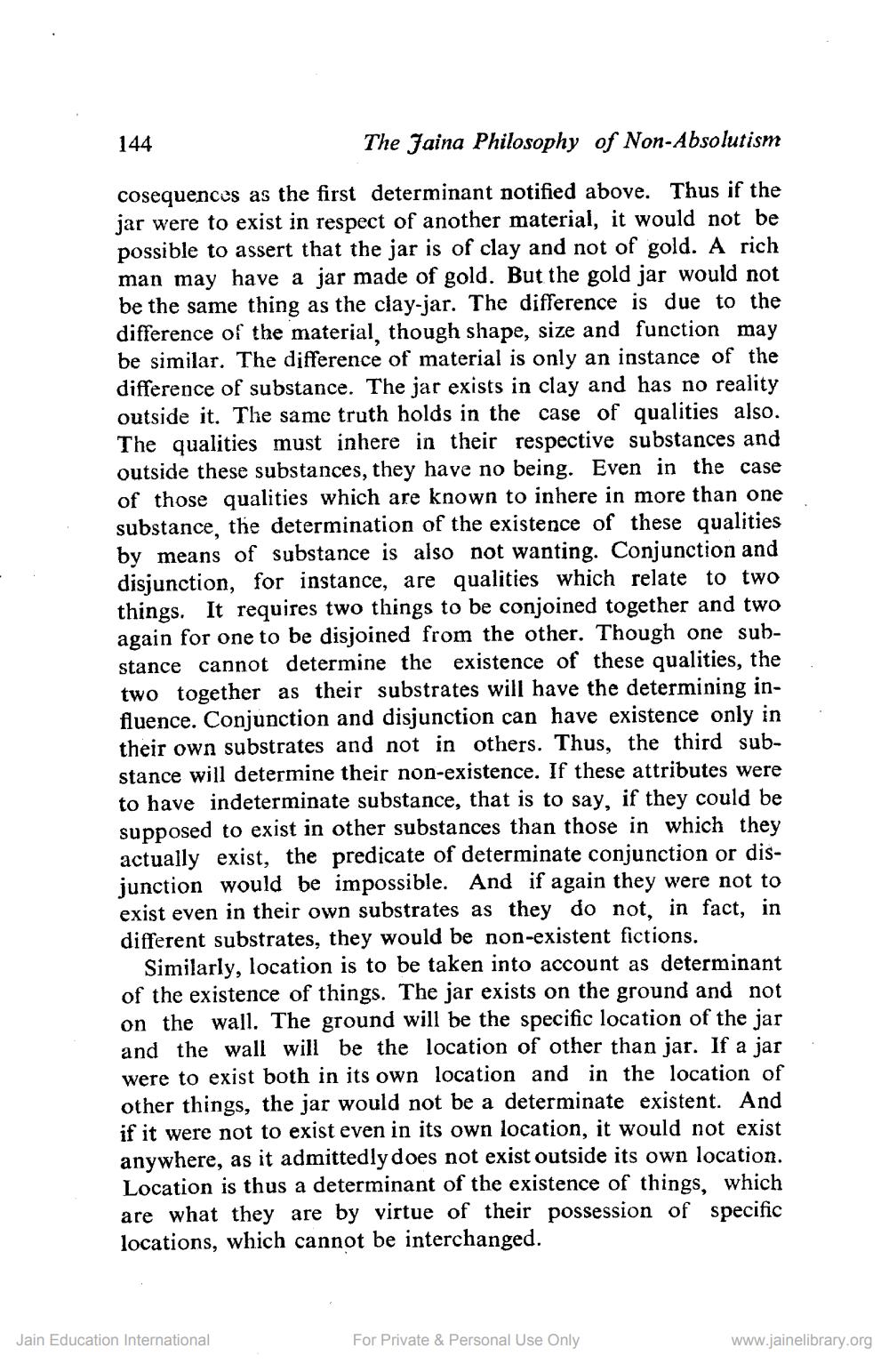________________
144
The Jaina Philosophy of Non-Absolutism
cosequences as the first determinant notified above. Thus if the jar were to exist in respect of another material, it would not be possible to assert that the jar is of clay and not of gold. A rich man may have a jar made of gold. But the gold jar would not be the same thing as the clay-jar. The difference is due to the difference of the material though shape, size and function may be similar. The difference of material is only an instance of the difference of substance. The jar exists in clay and has no reality outside it. The same truth holds in the case of qualities also. The qualities must inhere in their respective substances and outside these substances, they have no being. Even in the case of those qualities which are known to inhere in more than one substance, the determination of the existence of these qualities by means of substance is also not wanting. Conjunction and disjunction, for instance, are qualities which relate to two things. It requires two things to be conjoined together and two again for one to be disjoined from the other. Though one substance cannot determine the existence of these qualities, the two together as their substrates will have the determining influence. Conjunction and disjunction can have existence only in their own substrates and not in others. Thus, the third substance will determine their non-existence. If these attributes were to have indeterminate substance, that is to say, if they could be supposed to exist in other substances than those in which they actually exist, the predicate of determinate conjunction or disjunction would be impossible. And if again they were not to exist even in their own substrates as they do not, in fact, in different substrates, they would be non-existent fictions.
Similarly, location is to be taken into account as determinant of the existence of things. The jar exists on the ground and not on the wall. The ground will be the specific location of the jar and the wall will be the location of other than jar. If a jar were to exist both in its own location and in the location of other things, the jar would not be a determinate existent. And if it were not to exist even in its own location, it would not exist anywhere, as it admittedly does not exist outside its own location. Location is thus a determinant of the existence of things, which are what they are by virtue of their possession of specific locations, which cannot be interchanged.
Jain Education International
For Private & Personal Use Only
www.jainelibrary.org




